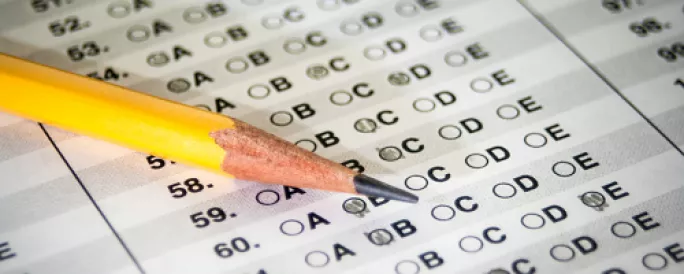Secondary moderns fight back as clamour for grammars grows
With grammar schools back on the political agenda, their secondary modern counterparts have begun a campaign to gain greater recognition.
The schools, which take pupils who have failed to pass the 11-plus exam in selective areas, want to raise awareness of the tougher jobs they face because of their lower-ability intakes.
Their numbers could increase if Conservatives pushing for more grammar schools are successful, and secondary modern leaders want to make sure people know they are there.
The newly formed National Association of Secondary Moderns has begun a petition for “more secondary moderns”, which mirrors one calling for more grammars that is backed by 80 Tory MPs.
The logic is simple: as two sides of the same selective coin, you can’t have one type of school without the other.
“With grammar schools come secondary moderns, lots of them,” the association explains. “For every grammar school created there will be an extra three (or more) secondary moderns, assuming grammar schools are selecting the top 25 per cent by academic ability.”
Ian Widdows, one of the association’s founders, said the aim was not to portray the idea of an expansion of either type of school as a good or a bad thing. But it wanted to ensure that people were aware of secondary moderns and the full implications of a grammar school revival.
“We just wanted a bit of openness about the situation,” Mr Widdows, deputy headteacher of Giles Academy, a secondary modern in Boston, Lincolnshire, told TES.
He said that people contacting the association’s Twitter account had demonstrated how little awareness there was of that kind of school.
“I have had no end of comments saying ‘don’t be ridiculous, secondary moderns don’t exist’,” Mr Widdows said. “One comment the other day said secondary moderns haven’t existed since the creation of the GCSE.”
He believes ignorance of the sector extends to the inspectors who hold it to account. “There is a body of evidence that would suggest Ofsted don’t understand secondary moderns and they don’t understand selective areas,” he said.
Research published last year showed that the inspectorate had judged just 1 per cent of grammars to require improvement or to be inadequate, compared with 28 per cent of secondary moderns.
Currently, around 130 schools are officially classed as secondary moderns by the Department for Education, according to Mr Widdows.
But he said the number was “dwindling all the time” as many converted to academy status. The schools often acquired a “comprehensive” tag in the process, even though their admission policy had not changed and there were still grammar schools in their area selecting the most able pupils.
“It is not an insult to be a secondary modern,” Mr Widdows said. “We are not second best.” There were “really outstanding” secondary moderns, he added, but their achievements were not recognised because the prior ability of their pupils was not taken into account.
It has been reported that education secretary Nicky Morgan is “likely” to approve the opening of the first new grammar in 50 years, in Sevenoaks, Kent - officially an annex of an existing grammar nine miles away.
The prospect comes amid renewed internal pressure on the Conservative Party to change its existing policy and allow a big expansion in grammar schools if it wins this year’s general election.
Don Porter, a founder the Conservative Voice pressure group, which set up the petition for more grammars, said: “It doesn’t necessarily follow that if you are bringing back grammar schools you are also bringing back secondary moderns.”
Asked to explain how that could be achieved, Mr Porter said: “We have to look equally carefully at vocational education; it is not just a case of saying with the 75 per cent ‘let’s stick them in a secondary modern’.”
Mr Porter said the campaign also wanted to ensure that the first of any new grammars would only be opened in areas of social deprivation or areas where current educational standards are “below par”.
Related stories:
Is Ofsted’s grading ‘scandalous’? - 22 August 2014
Keep reading for just £1 per month
You've reached your limit of free articles this month. Subscribe for £1 per month for three months and get:
- Unlimited access to all Tes magazine content
- Exclusive subscriber-only stories
- Award-winning email newsletters




